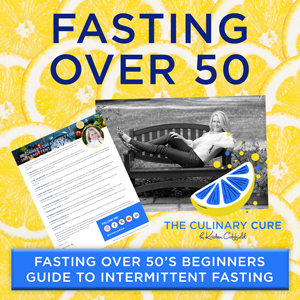Salmon Says

It's salmon season! "After years of fattening up in the ocean, each spring, adult salmon return to their 'home' river - where they were born - to spawn," said M.J. Gimbar, Fishmonger for Black Restaurant Group, which runs BlackSalt Fish Market and Restaurant on MacArthur Blvd.
"The wild Pacific King Salmon are first up the rivers and are just starting to arrive here in Washington," said Bob Moore, owner of Canon's Seafood in Georgetown. Nothing compares to the beautiful, naturally bright-pink wild Pacific salmon for flavor or for omega 3 fatty acid content. Before I share some favorite recipes, I'll explain why the omega 3 fatty acids in salmon are so important nutritionally.
I first became interested in the power of omega-3 fatty acids when psychiatrists I work with began prescribing them for their depressed patients. Then I started hearing about their benefits for arthritis and a host of other diseases. And I couldn't help but wonder, could it be possible that one simple change in the diet could provide so many benefits?
The connection between omega-3 fatty acids and health was first observed in the 1970s. Scientists noted that compared with their counterparts in Scandinavia, Greenland Eskimos had a reduced rate of heart disease, rheumatoid arthritis and other conditions even though they were eating a high-fat diet. The scientists hypothesized that the type of fat -- marine derived -- might play a role.

Since then, study after study has confirmed that omega-3 fatty acids, a type of polyunsaturated fat found primarily in fish, have a potent and positive effect on heart disease. Omega-3s prevent irregular heart beat, reduce plaque inside artery walls and decrease blood clotting, triglycerides (blood fat), and inflammation.
"Omega-3s favorably affect a number of risk factors for cardiovascular disease and at the top of the list is reducing the risk of sudden death from heart attack," says Penny Kris-Etherton, a nutrition professor at Pennsylvania State University.
But the healing powers of omega-3s don't stop there. Research suggests they may reduce the risk of diabetes, reduce insulin resistance in people with diabetes, enhance bone density and inhibit proliferation of cancer cells in the breast, prostate and colon and improve skin condition by curbing psoriasis. Inflammatory diseases such as rheumatoid arthritis, ulcerative colitis and Crohn's disease seem to improve with more omega-3s. In infants, it improves cognition and visual acuity. And emerging research indicates omega-3s may boost levels of the brain chemicals serotonin and dopamine, decreasing depression and violent behavior.
While not an answer to every ailment, omega-3 fatty acids possess considerable healing powers. As an indication of their importance, the Food and Nutrition Board of the National Academy of Sciences recently established a minimum daily requirement: 1.1 grams for adult women, 1.6 grams for adult men.
But in nutrition, balance is everything. Learn more about omega 3 fatty acids and try a few of my favorite salmon recipes ...





